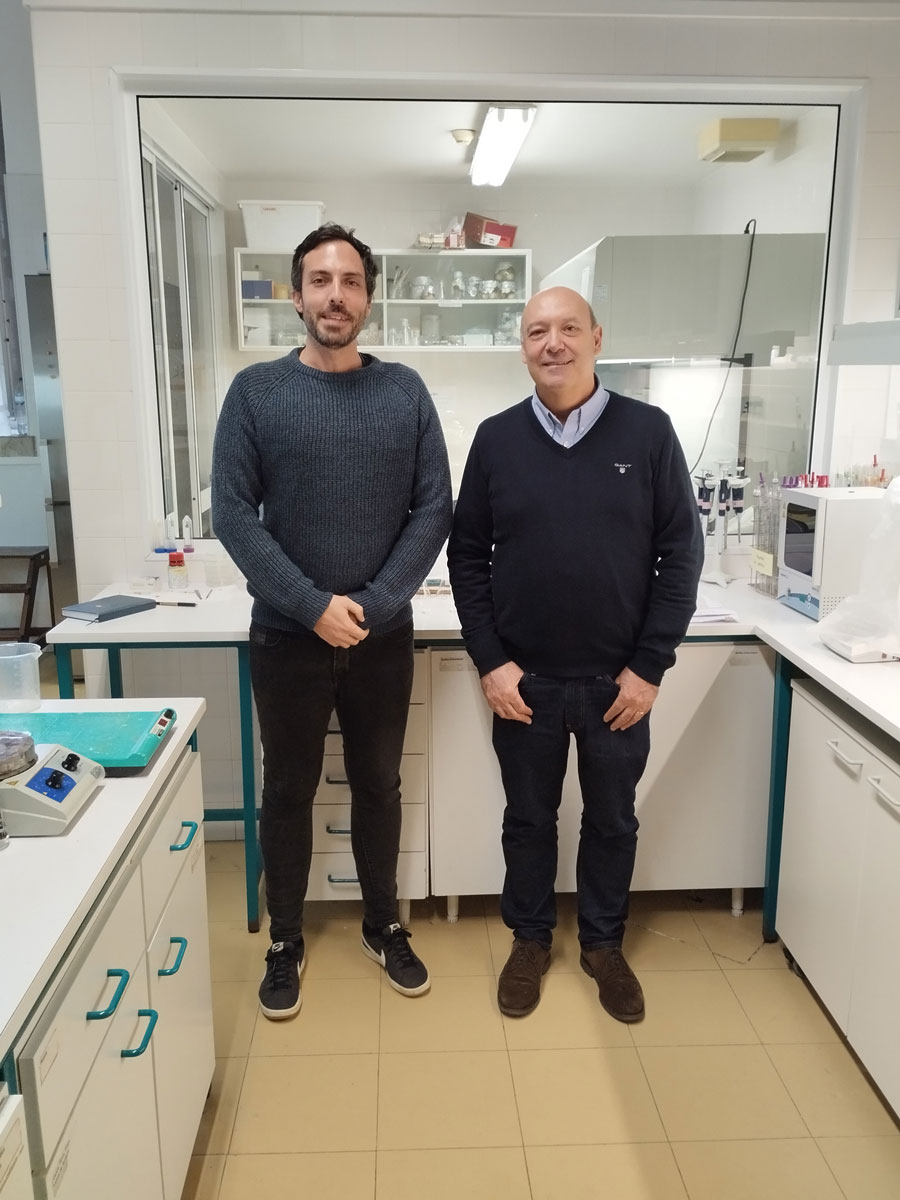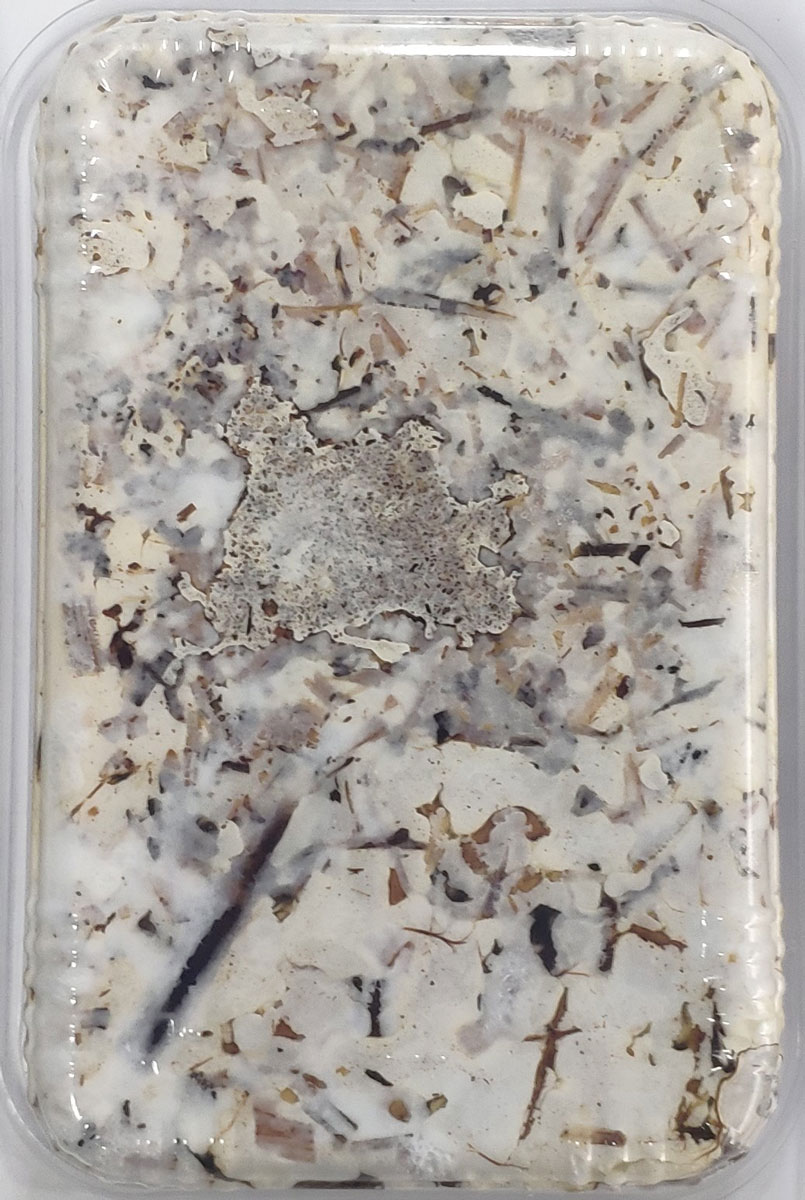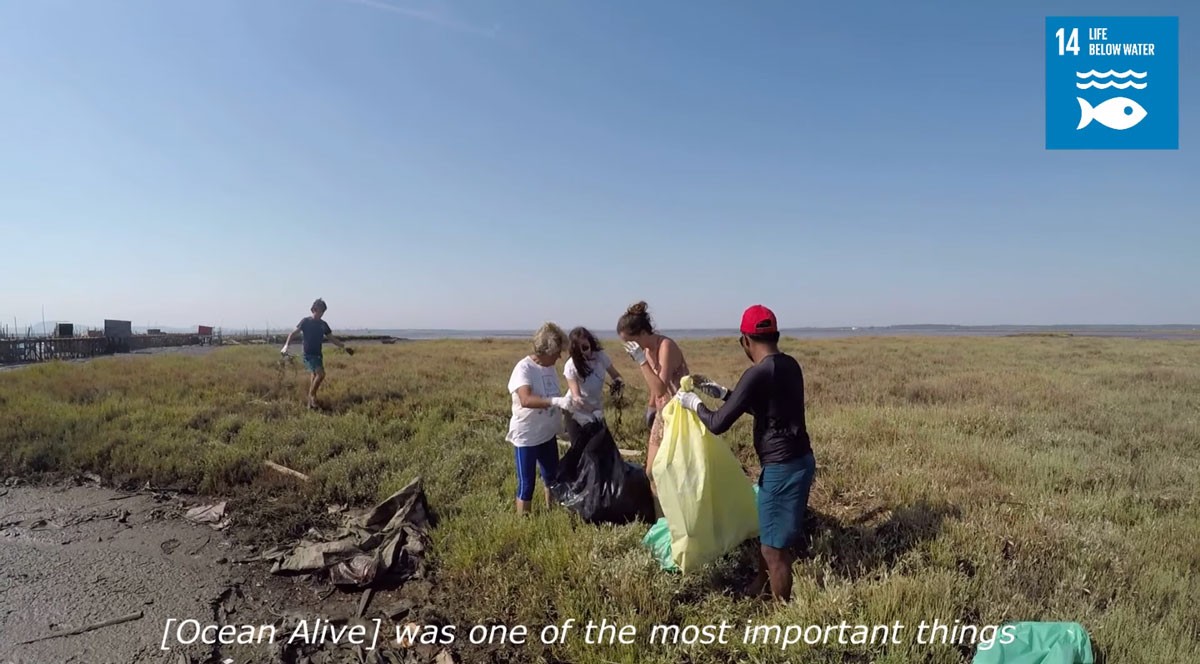A team of scientists from the Faculty of Science and Technology of the University of Coimbra (FCTUC) developed a product based on forestry residues and fungi that can be used in the construction sector, particularly on the interior walls of buildings.
The objective of this product, developed within the scope of the “Value2Prevent” project, is to value forest biomass, add value to forests and, consequently, increase product yield.
«Normally, forestry producers do not have great incentives to clear land, because the biomass that results from cleaning is not of great value, as it has to be transported to specific locations and transport and collection are very expensive. Therefore, there must be an increasing return for this to be compensatory for producers», begins by explaining João Martins, a researcher at the Center for Functional Ecology (CFE) of the Department of Life Sciences (DCV) at FCTUC.
In this sense, he continues, «We developed a product that can be used in construction, particularly in interior walls, which has an exciting added value. The idea is to use forest biomass residues and inoculate them with a fungus that has the ability to partially degrade the biomass and create a type of cement, aggregating all the particles and forming a block. Subsequently, this product is dried, to inactivate the fungus, and can be used inside two wooden plates, thus replacing the synthetic materials currently used», describes the researcher.
In addition to being a sustainable alternative, this product also has other advantages that can make a difference, namely «the thermal and acoustic properties, the fact that it is a more balanced option, as it is as sustainable as wood, but as efficient as coating synthetic, and also the low cost of the product. Biomass is relatively cheap and we can produce these blocks easily», he concludes.
The tests have been carried out using eucalyptus, maritime pine, strawberry tree, and even a mixture of shrubs. Still, in the future, the team intends to test the use of other products with biomass, such as reused plastic, cork and rubber, which can make the acoustic and thermal properties of this material even more effective.
The “Value2Prevent” project is promoted by SerQ – Forest Innovation and Skills Center, with partners such as the University of Coimbra (UC), the Instituto Superior de Agronomia (ISA), the Centro Ciência Viva da Floresta de Proença-a-Nova (CCVF) and Proentia – Essential Oils.
Follow us on Facebook, Twitter, Instagram, Youtube, and TikTok and see the exclusive content for social networks.









